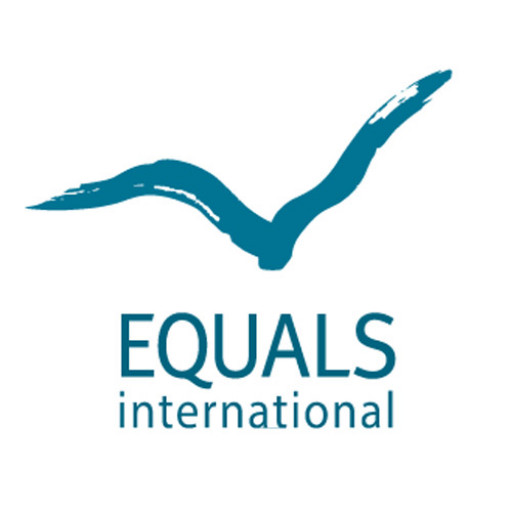Photos of university / #rmituniversity
The Child and Family Health Nursing program at RMIT University is designed to prepare registered nurses to specialize in providing comprehensive healthcare services to children, adolescents, and their families. This postgraduate qualification equips graduates with advanced clinical skills, evidence-based practices, and a deep understanding of child development, family dynamics, and community health principles. The program focuses on fostering a holistic approach to healthcare, emphasizing the importance of family-centered care, health promotion, disease prevention, and early intervention strategies. Students will engage in rigorous coursework that covers topics such as pediatric nursing, adolescent health, maternal and child health, mental health considerations, and culturally sensitive care practices. Practical clinical placements are an integral part of the program, allowing students to apply their knowledge in real-world settings under the supervision of experienced professionals. Through these placements, students develop critical thinking, communication, and leadership skills necessary to navigate complex healthcare environments. The program also explores contemporary issues in child and family health, including social determinants of health, policy implications, and innovative intervention methods. Graduates of the Child and Family Health Nursing program are prepared for a range of roles within community health services, hospitals, schools, and child advocacy organizations. They are equipped to support families across various stages of child development and to promote healthy lifestyles in diverse populations. The program fosters a collaborative learning environment, encouraging students to engage with faculty and peers in research, case studies, and community projects. Upon successful completion, graduates will be well-positioned to advance their careers in specialized child and family health nursing, contribute to policy development, and support the wellbeing of children and families in Australia and beyond.
The Child and Family Health Nursing program at RMIT University provides a comprehensive education designed to prepare students for a specialized role in community and child health nursing. This program aims to equip graduates with the knowledge, skills, and clinical competence necessary to promote the health and well-being of children, adolescents, and their families across various community settings. The curriculum covers key areas such as child development, family dynamics, health promotion, disease prevention, and family-centered care. Students will explore evidence-based practices and contemporary approaches to supporting families through different stages of childhood and adolescence, including early intervention strategies and public health initiatives.
Throughout the program, students engage in rigorous theoretical learning complemented by extensive practical placement experiences. These placements are arranged in diverse settings, including community health clinics, schools, child care centers, and family support services, providing learners with real-world exposure and hands-on training. Emphasis is placed on developing culturally sensitive communication skills essential for working effectively with diverse populations, as well as understanding the social determinants of health impacting children and families. The program integrates current issues such as mental health, autism spectrum disorders, and family violence, preparing graduates to address complex health needs with professionalism and empathy.
By completing this program, students will qualify for registration with the Nursing and Midwifery Board of Australia as registered nurses with specialization in child and family health. They will be empowered to undertake roles in community health nursing, adolescent health services, maternal and child health programs, and other related community-based healthcare services. The RMIT Child and Family Health Nursing program emphasizes lifelong learning, critical thinking, and the ability to adapt to evolving health care environments. Graduates will be equipped to contribute significantly to improving health outcomes for children and their families, advocating for vulnerable populations, and supporting public health initiatives to foster healthier communities.
A Bachelor of Nursing degree or equivalent, and a Graduate Diploma in Midwifery or Bachelor of Midwifery degree or equivalent Current registration with AHPRA as both a nurse and a midwife. Applicants must also have a minimum of twelve months old EFT graduate experience in the nursing and midwifery. Applicants should be able to demonstrate recent clinical encounter, defined as having functioned in nursing or midwifery for a minimum of one year EFT in the past five years. Applicants are required to arrange a clinical place with a local MCH service and submit confirmation of this as part of the application procedure. Applicants are encouraged to discuss that early in the application process with the program coordinator, who'll also provide a specific form with this condition. Applicants are required to give a CV.
The Child and Family Health Nursing program at the Royal Melbourne Institute of Technology (RMIT) offers a comprehensive financial framework to support prospective students. Tuition fees for international students are approximately AUD 33,600 per year, with domestic students benefiting from subsidized rates through government funding programs such as the Commonwealth Supported Places (CSP) and the Higher Education Loan Program (HELP). Domestic students may also be eligible for various scholarships, grants, and financial aid options provided by RMIT and external organizations to reduce the overall cost of their studies.
Students are encouraged to explore various financing options, including Personal Loans, payment plans, and work-study arrangements, which can assist in managing tuition payments and living expenses during their course duration. RMIT provides detailed guidance on financial planning and student financial services to help students navigate their funding options efficiently. Additionally, students may consider part-time employment opportunities both on and off-campus to supplement their income and gain valuable professional experience while completing their degree.
International students should also budget for additional expenses such as health insurance (Overseas Student Health Cover - OSHC), accommodation, textbooks, and daily living costs, which are not included in tuition fees. RMIT offers scholarship programs specifically for international students to support their academic journey, and applicants are encouraged to apply early to maximize their chances of receiving financial assistance.
Furthermore, students enrolled in the Child and Family Health Nursing program are eligible for clinical placement funding and related expenses, which are necessary for hands-on training and practical experience in real-world healthcare settings.
Overall, the RMIT Child and Family Health Nursing program is designed with transparent and accessible financing options to make nursing education attainable and affordable for a diverse range of students, ensuring they can focus on developing their skills and knowledge necessary for a successful career in child and family healthcare.
The Child and Family Health Nursing program at RMIT University is designed to prepare registered nurses to specialize in community and primary health care, focusing on the health and well-being of infants, children, adolescents, and their families. This program equips practicing nurses with advanced knowledge and skills necessary for providing comprehensive healthcare services in diverse community settings, including child and family health clinics, community health centers, and school health programs. The curriculum emphasizes child development, family dynamics, health promotion, disease prevention, and evidence-based practice, ensuring graduates are competent in assessing and responding to the unique health needs of children and their families.
Students enrolled in the program will engage in a blend of theoretical coursework and practical placements, enabling them to apply their learning in real-world environments under the supervision of experienced professionals. The coursework covers a wide range of topics, such as pediatric nursing, family-centered care, adolescent health, health education, and community engagement. The program also emphasizes the importance of culturally responsive care, addressing the diverse backgrounds of Australian communities.
Upon completion of the Child and Family Health Nursing program, graduates are eligible to apply for accreditation with relevant professional nursing bodies, enhancing their employment prospects within the healthcare sector. They may find employment opportunities in public health units, maternal and child health services, community health organizations, and governmental public health agencies. The program aims to develop nurses who are not only clinically competent but also capable of leading health promotion initiatives, advocating for children's health rights, and contributing to policy development at various levels.
RMIT University is known for its strong industry connections and practical learning approach, ensuring that graduates are job-ready upon graduation. The program also offers pathways for further specialization, advanced practice roles, and postgraduate studies in related fields such as family health, community nursing, or public health. The faculty offers dedicated support and mentorship throughout the course duration to foster professional growth and confidence in emerging child and family health nursing practitioners.









